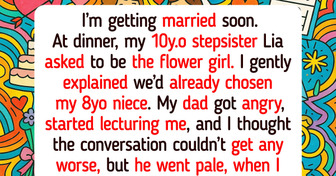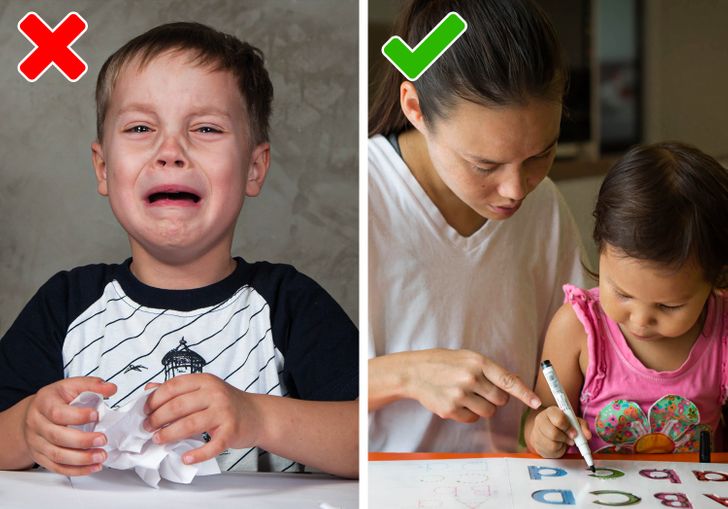They are very good tips for dealing with young children. What does one do when the child is an adolescent and throwing the same tantrums for the same reasons (he can't do what he wants or is asked to stop playing and do homework/chores/go to bed?)
Why Your Kid Can’t Really “Calm Down” During a Tantrum and What to Do About It

When your children are throwing tantrums, they might seem like a tornado that’s impossible to control. So if they just won’t stop crying and acting out, it’s understandable that you might feel frustrated. Some people might even think it’s a sign that they’re bad parents if their child has tantrums. However, this behavior is an essential stage in their development, because during this time they learn to deal with their emotions.
We at Bright Side don’t think parents should beat themselves up if their child has tantrums. And we’d like to tell you how you can try to help your child calm down in these situations.
Your kid can’t calm down because their growing brain is simply not capable of doing that.
The way our brain works can be roughly divided into emotional and rational aspects. The emotional aspect is more primitive and instinctual. The rational aspect helps us plan, think before we act, make moral decisions, and see things from another perspective. During a tantrum, the emotional, impulsive part takes over in a child, and it’s impossible for the rational, logical part to balance it out.
For the child’s developing brain, it’s hard to try and see things from the perspective of their parent and to calm down. And because the rational part is basically shut down during the tantrum, it most likely won’t work if you try to reason with your child.
There’s one reason children throw tantrums.
There’s usually just one reason tantrums happen — it’s because your child can’t get what they want and their emotions overwhelm them. For children ages 1 to 2, the problem is that they often can’t tell you what they need because they don’t have the language skills to do it.
For older toddlers, it’s more about their independence. They know what they want, they know how to ask for it, but if they don’t get it, it really upsets them. Because of that, they feel like they’re not in control, and they want to show their power by throwing a tantrum. Sometimes it works, and they learn that this kind of behavior can help them manipulate you.
What the child wants doesn’t always have to be some sort of object. It could also be an activity they can’t do by themselves. For example, your kid might have trouble tying their shoes, but they don’t want to ask for your help because they want to feel independent. And when they realize that they can’t do it alone after all, their negative emotions pop up.
Ignoring the tantrum is the best strategy.
The first thing you can do to deal with your kid’s tantrum is to try to stay calm yourself. This will help you think more clearly, and it will also be a good example for your kid. They’ll see that you’re calm, and they might find it easier to calm down by mirroring your behavior.
When you stay calm, your kid will also see that their outburst doesn’t affect you in a way they might have expected. Ignoring the tantrum will teach your child that behaving that way won’t get them anywhere.
There are a couple of tricks that can help you calm your child down.
Simply telling your kid to relax and calm down might not be enough, so it’s a good idea to try to do it in a soft voice. Also maintain eye contact, because it’ll show your kid that you’re listening and that you care. Gently touching your child can also help them feel more relaxed.
Another trick that can help diffuse a tantrum is turning your kid’s attention to something else. For example, you can ask them a question they aren’t expecting that has nothing to do with the situation that caused the tantrum, like, “What’s the name of your best friend’s mom?”
Playing some sort of game could also help distract them. It could be something where they need to be physically active, like playing catch, or where they need to strain their brains a bit. Tasting something sour or bitter, like a lemon, could be helpful as well.
You can also try to prevent the tantrums.
Try to figure out what causes your child’s tantrums. Once you do this, you can try to modify those triggers in a way that will help your kid deal with them better. For example, if doing homework seems too overwhelming for them, you could try making it easier by allowing them to take frequent breaks. You could also help them break down their tasks into smaller chunks, and generally, show your support and approval while they’re doing them.
How do you react when your child throws a tantrum? What is the reason that they usually throw tantrums? Do you have any tricks that help you calm your kid down?
Comments
Related Reads
20 Stories That Remind Us Kindness Still Exists, Even When It’s Hard to See

I Refuse to Work Three Unpaid Weekends to Prove Loyalty — HR Got Involved
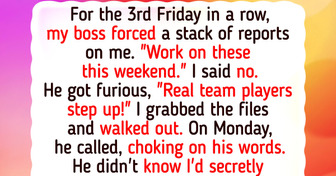
15 Stories That Prove the Kindest Moments Are Often the Quietest

15 Moments That Inspire Us to Keep Our Kindness, Even When the World Gets Heavy
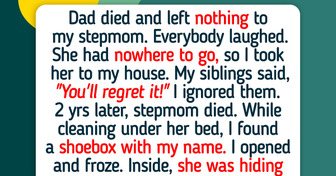
I Gave My MIL a Simple Gift—But My Family Demanded I “Choose a Side”

I Refuse to Let My Boss Control My Breastfeeding Breaks at Work
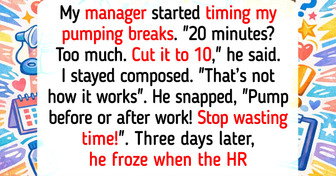
12 Stories That Show the Bravest Thing You Can Do Is to Be Kind

11 Times a Stranger’s Kindness Rewrote the Rest of Someone’s Life
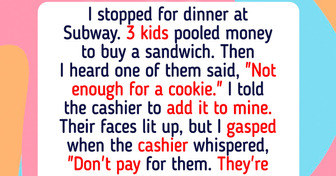
My Daughter Disrespected My Sacrifices—And I Refused to Let It Slide
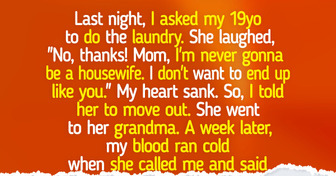
My Parents Wanted a ‘Family Vacation’ on My Budget—I Made One Move They Didn’t Expect

I Canceled My Sister’s Free Childcare—Her Cruel Words Cost Her My Support
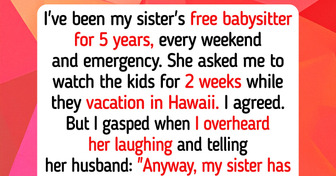
My Dad Demanded to Give My Stepsister the Spotlight on My Wedding—But I Reclaimed It
